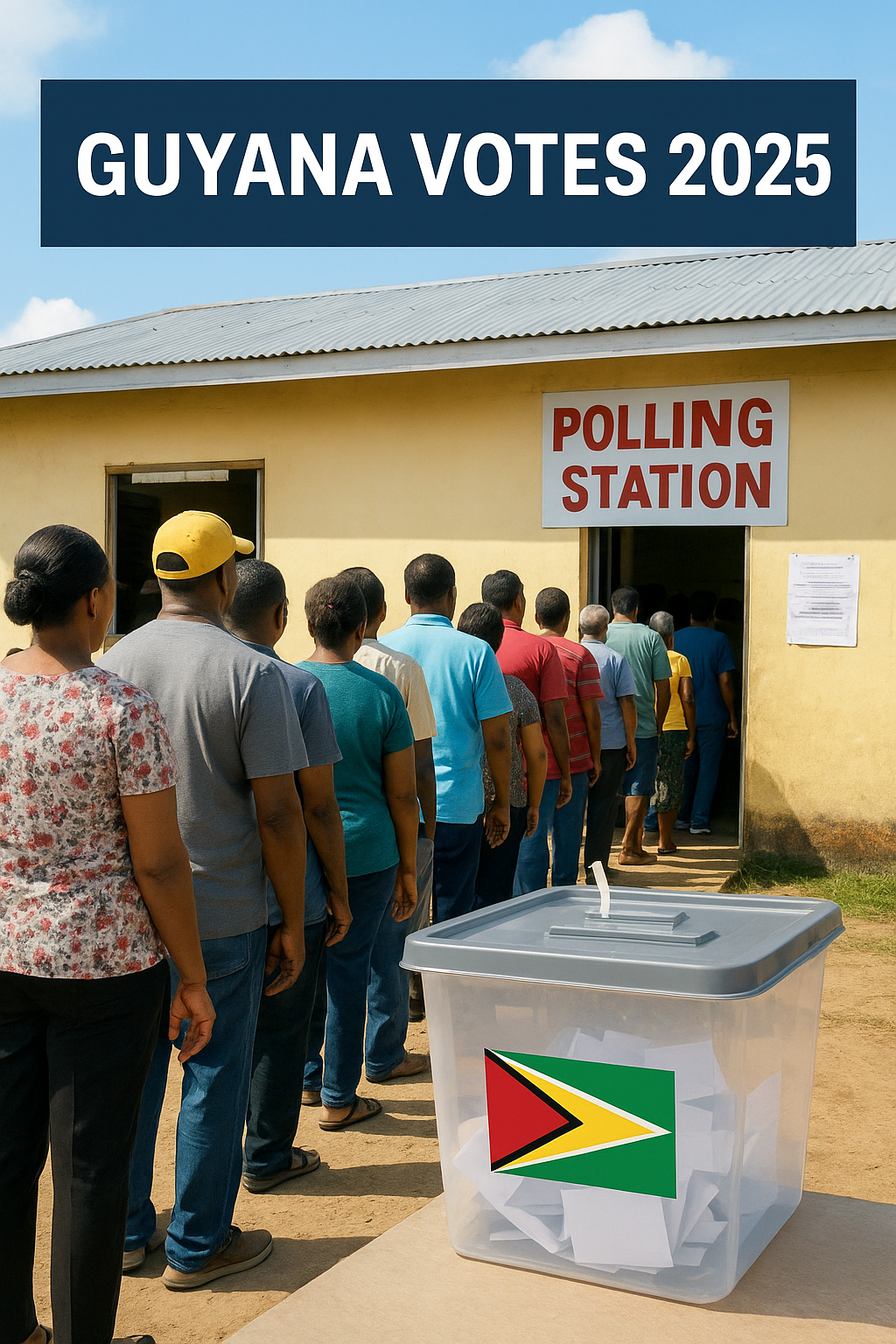Georgetown, Guyana – September 2, 2025
Guyanese citizens are anxiously awaiting the official results of Monday’s general and regional elections, with the Guyana Elections Commission (GECOM) expected to release preliminary tallies by Wednesday night.
The September 1 polls — widely regarded as the most consequential in the nation’s history — saw voters choose 65 members of the National Assembly and determine whether President Irfaan Ali and his People’s Progressive Party/Civic (PPP/C) will continue governing the world’s fastest-growing oil economy.
Early unofficial results from Statements of Poll (SoPs) suggest the PPP/C is in the lead, followed by the newly formed We Invest in Nationhood (WIN) party and the main opposition coalition A Partnership for National Unity (APNU). However, GECOM has warned that these partial figures should not be treated as final and has condemned the circulation of fake SoPs online, referring some cases to the police.
International observers from the Commonwealth, CARICOM, and the Carter Center have praised the conduct of the vote, noting that despite outdated voter lists and logistical challenges, election day proceeded smoothly.
The stakes could not be higher. Guyana’s economy, supercharged by offshore oil production, has expanded nearly fivefold since 2019. The election has been dominated by debate over how oil revenues should be managed — whether to double down on major infrastructure projects and free university education, as the PPP/C proposes, or to push for more equitable distribution and economic diversification, as opposition parties have urged.
Political analysts note that WIN’s surprisingly strong performance may reshape Guyana’s traditionally two-party system, potentially forcing coalition politics if neither PPP/C nor APNU secures a clear majority.
GECOM is urging citizens to rely only on its official announcements for verified results. Final declarations could come as soon as Thursday, barring disputes or recounts.
For now, Guyana — and the region — waits to see which party will steer the country through the next phase of its oil-driven transformation.
